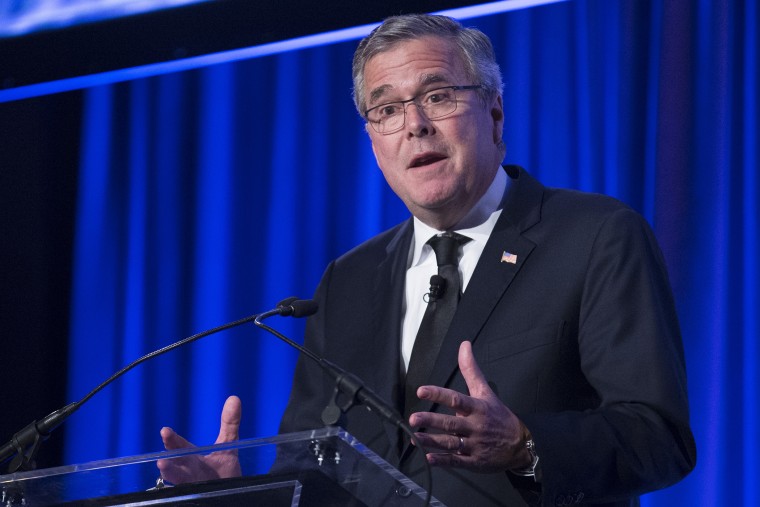In one of his first public appearances of the 2014 campaign, former Gov. Jeb Bush of Florida had a vivid preview Wednesday of the challenges he would face with his party's conservative base should he seek the Republican nomination for president in 2016. Standing alongside Thom Tillis, the North Carolina House speaker and Republican Senate candidate, Mr. Bush outlined his views on two of the issues he cares most passionately about: immigration policy and education standards. But as Mr. Bush made the case for an immigration overhaul and the Common Core standards, Mr. Tillis gently put distance between himself and his guest of honor, who had flown here from Florida on a dreary day to offer his endorsement in a race that could decide which party controls the Senate.
The challenge of being Jeb Bush
The former Florida governor is out of step with his party on immigration and education. As he discovered in North Carolina, that poses a serious 2016 problem.

Like plenty of other possible 2016 aspirants, former Florida Gov. Jeb Bush (R) is doing lots of traveling, sharing ideas, kicking around possible planks in a platform, making campaign appearances with candidates who might need a hand, and picking up chits for later use.
With this in mind, it seemed entirely normal to see Bush in North Carolina this week, campaigning alongside Republican Thom Tillis, who's taking on incumbent Sen. Kay Hagan (D). Except, as Jonathan Martin reported from Greensboro, the former governor is quickly discovering that hitting the campaign trail is easier said than done.
Keep in mind, Bush hasn't served in public office in nearly eight years, and his party, which was pretty far to the right during his tenure, is even further to the right -- and more attuned to breaks with ideological orthodoxy -- now.
For that matter, Bush ran two fairly easy, primary-free statewide campaigns in Florida in 1998 and 2002; he worked with Republican majorities in the state legislature that took good care of him; and he's the son and brother of former presidents. Bush probably isn't accustomed to having to worry about Republicans distancing themselves from him and his agenda while he tries to help get them elected.
And yet, Thom Tillis has made opposition to "amnesty" and Common Core key elements of his campaign ... which is the opposite of what Jeb Bush believes ... which made it problematic when Bush talked about how great immigration reform and education standards are during his appearance with Thom Tillis.
Looking ahead, if the Florida Republican is serious about a national campaign -- and after events like this one in North Carolina, he might very well be reevaluating his plans -- Bush is going to have to decide how to deal with the fact that his party strongly rejects his position on some key issues.
Does he pull a Rand Paul and start abandoning his positions for the sake political convenience? Does he pull a Mitt Romney and start lying? Does he pull a Jon Huntsman and try running as a mainstream GOP candidate?
Does he move to the very far right on other issues in the hopes of compensating for his positions on immigration and education?
I don't know, but more importantly, I don't think Jeb Bush knows, either.